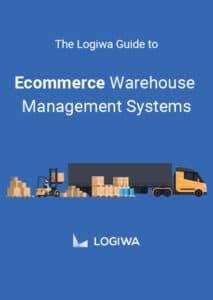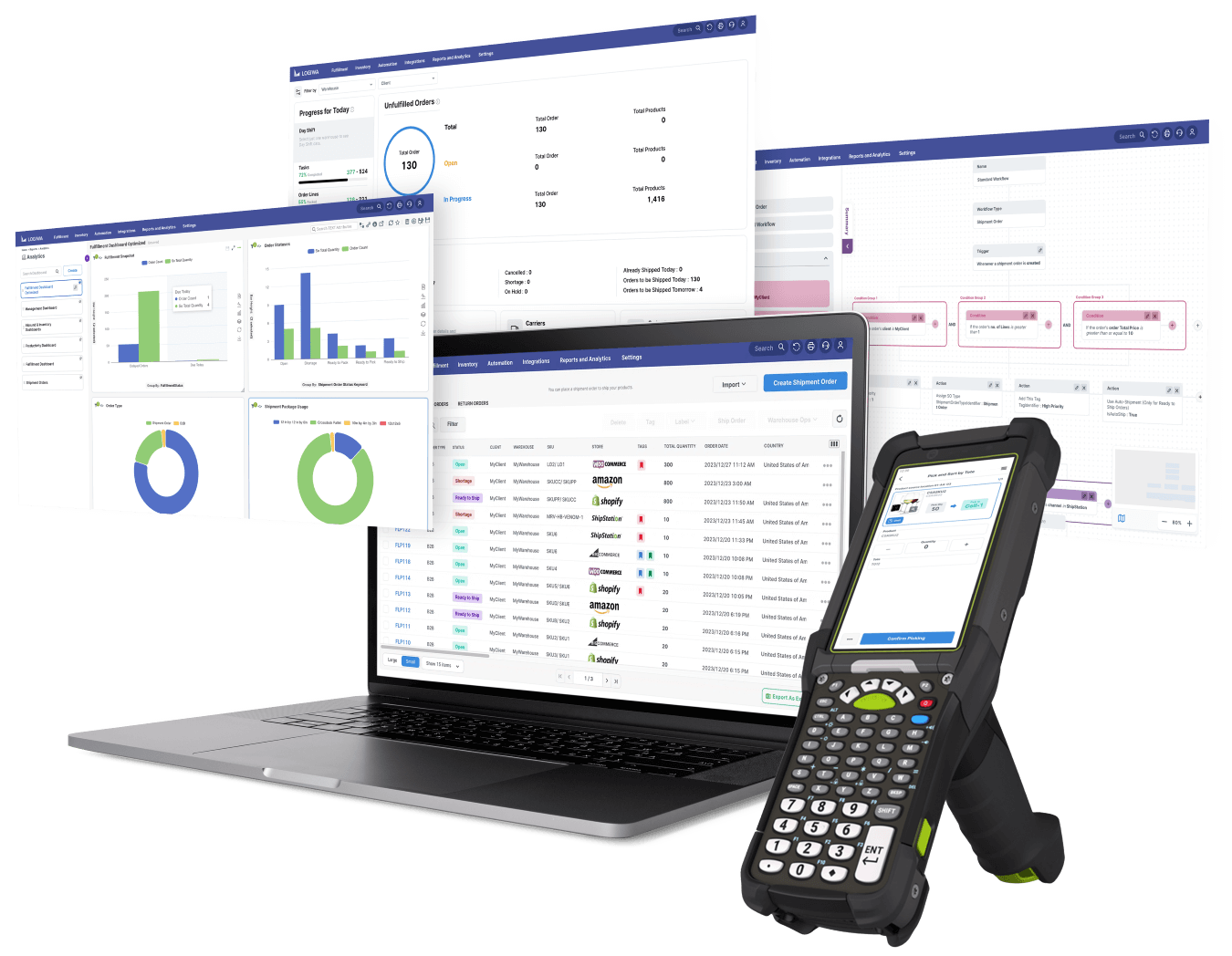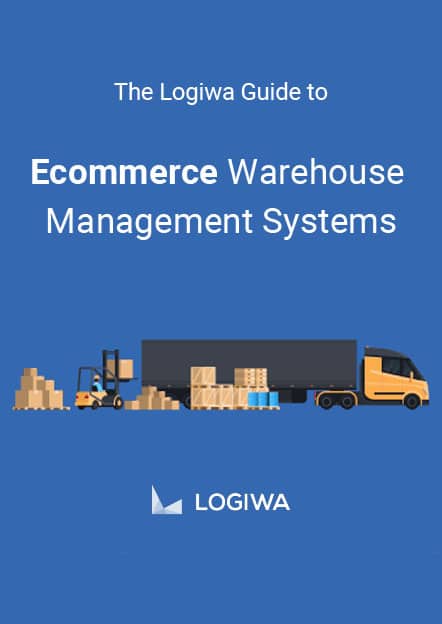Logiwa Guide
Ecommerce Warehouse Management System Guide
Ecommerce warehouses face complex challenges that require specific solutions. Download this ecommerce wms software guide to see what yours will be.
If you’re new to the world of warehouse management systems (WMS), or are opening an ecommerce warehouse for the first time, it can be overwhelming to choose the right software solution to help manage your operations. Afterall, many platforms claim to be the perfect fit but actually lack key functions needed to support direct-to-consumer (DTC) fulfillment.
Complete the form below to receive this content:
This brings us to the ecommerce warehouse management system.
As the overseer of an ecommerce warehouse, you have growing consumer demands to meet, complex obstacles to plan for (ex. changes in your supply chain, high-volume single item orders, multiple sales channels, backorders, etc.), and little room to make mistakes. That’s why it is so important to integrate with the right ecommerce warehouse management system
Unlike traditional WMS solutions, an ecommerce warehouse management system manages the entire order fulfillment process from initial purchase all the way through delivery.
An ecommerce warehouse management system uses advanced algorithms and integrations to ensure fast and accurate warehouse procedures. They maintain your inventory levels and safeguard customer satisfaction by offering visibility and control over each stage of your fulfillment process. This ensures consumer expectations are consistently met, even when last-minute order changes are made.
Order bundling, automated carrier selection based on shipping rates, and value-added services like same/next-day delivery all become possible with the right ecommerce warehouse management system. They make it easy to resolve missing or damaged orders, and allow you to react proactively to fluctuating inventory levels by forecasting demand. Unlike traditional WMS ecommerce solutions, they are equipped to handle the changes that come with ecommerce and B2C operations.
That said, without knowing all the capabilities of a standard WMS and an ecommerce warehouse management system, you won’t be able to make a fully informed decision about which solution is best for your business!
Logiwa is the most ecommerce-friendly fulfillment platform on the market for brands, online sellers and 3PLs that ship directly to consumers. We offer smart picking algorithms and through our pre-built integrations or Logiwa’s Integration Orchestrator, we make the process of creating, adding or customizing integrations across robotics, ecommerce, shipping, and other critical business functions seamless.
Inside, you’ll find:
-
- A basic overview of ecommerce WMS software and its primary functions
- Ecommerce warehouse challenges to consider when picking a solution
- The benefits of choosing an ecommerce warehouse management system(ex. time-saving automation, reduction in human errors, better order handling, walking path optimization, centralized inventory management, etc.)
- The most important aspects to consider when choosing an ecommerce WMS (ex. Can it easily connect to your desired sales channel? Is it cloud-based?)
- How to use your ecommerce warehouse management system for optimal results
- Key Performance Indicators (KPIs) to track with your system
You can achieve 100% accuracy, and a 50% increase in productivity by choosing the right ecommerce warehouse management system. Download this “Ecommerce WMS Guide” or visit our website www.logiwa.com for more insights on high-volume DTC fulfillment solutions.
Ecommerce Warehouse Management System Guide
Get the guide that outlines the best practices you need to speed high-volume DTC fulfillment.

Ecommerce warehouses face complex challenges that require specific solutions. Download this ecommerce wms software guide to see what yours will be.
If you’re new to the world of warehouse management systems (WMS), or are opening an ecommerce warehouse for the first time, it can be overwhelming to choose the right software solution to help manage your operations. Afterall, many platforms claim to be the perfect fit but actually lack key functions needed to support direct-to-consumer (DTC) fulfillment.


